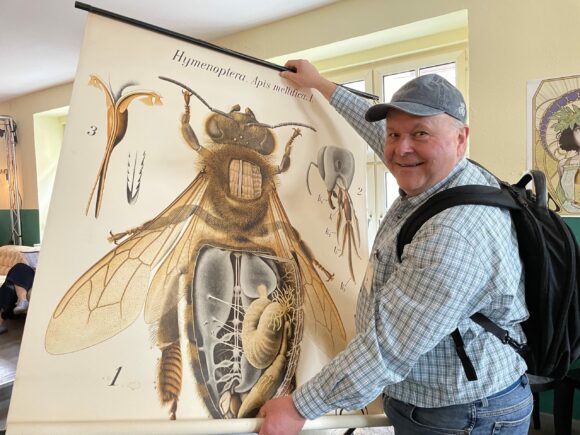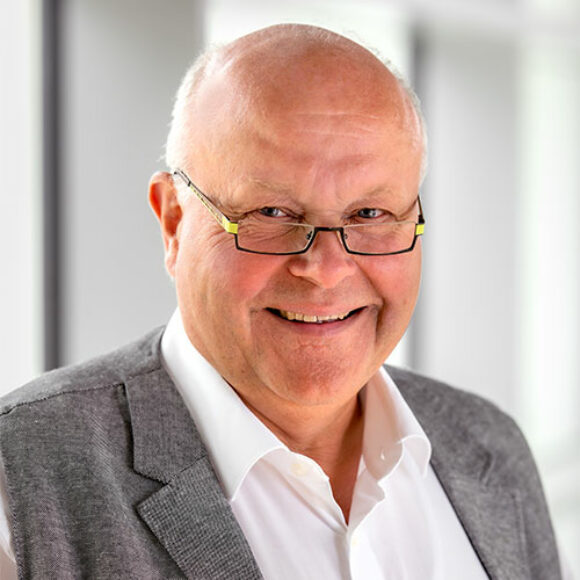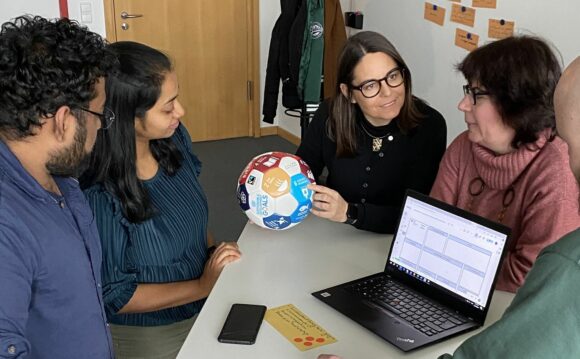In large parts of the world, water is extracted from ground or surface waters to meet the population’s water needs. However, these water resources are not available in unlimited supply. The increasing demand for water can be explained by the growing population and the associated increase in demand for agricultural produce, energy and industrial products. In addition, periods of drought are becoming more frequent. While in the 20th century the available water resources and traditional water systems were still largely sufficient to withstand prolonged periods of drought, this is no longer the case in the 21st century. There is therefore an urgent need to rethink current water management approaches. A wastewater reuse project at Hof University of Applied Sciences is addressing this issue.
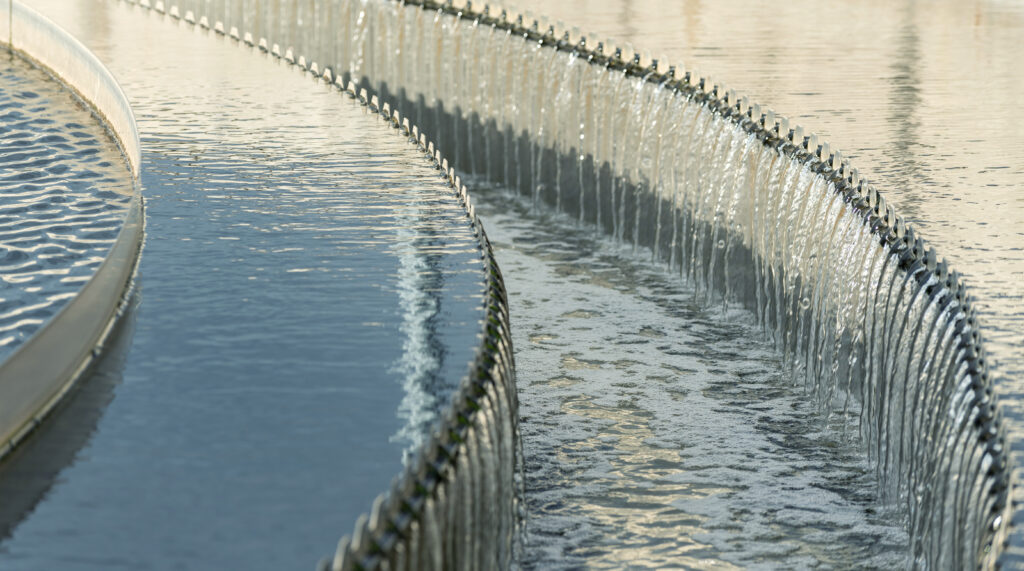
Periods of water scarcity have a particularly negative impact on agriculture. Since crop growth is restricted by the lack of water, yield security is at risk. Therefore, in order to ensure sustainable water management in all areas of life, wastewater reuse is becoming an increasingly important focus. “Wastewater reuse means treating wastewater in such a way that it must be adapted to its subsequent use and the resulting quality requirements,” says Prof. Günter Müller-Czygan, endowed professor at Hof University of Applied Sciences and head of the “Water Infrastructure and Digitalization” research group.
Municipal wastewater interesting for wastewater reuse
Since municipal wastewater is the largest source of water available in terms of volume, but at the same time it is always heavily polluted, modern technology must be used. This makes it possible today for recycled wastewater to have a significantly higher quality than some “natural” water sources
The treatment of water from municipal sources is now mostly uncomplicated, but depending on the degree of pollution, technically complex and cost-intensive”
Prof. Günter Müller-Czygan
However, technologies and necessary systems are available and already established. The use of this water source thus offers considerable advantages: In addition to the conservation and thus more sustainable use of natural water resources, the treatment steps also reduce the input of pollutants into the environment, and temperature changes and salinization, which can also be responsible for a disturbed material balance of water bodies, can be minimized. “So the use of recycled wastewater could be an effective solution building block for increasing water scarcity,” the research group leader said.
Wastewater reuse fails not because of technology, but because of acceptance
The goal of the FlexTreat (Flexible and reliable concepts for sustainable water reuse in agriculture) project at Hof University of Applied Sciences is therefore to promote safe wastewater reuse in agriculture by developing and demonstrating flexible technical and natural treatment systems adapted to agricultural needs. “However, many wastewater reuse projects fail not because of issues related to treatment technology, but because of the lack of a legal framework as well as acceptance on the user side,” explains Prof. Müller-Czygan.
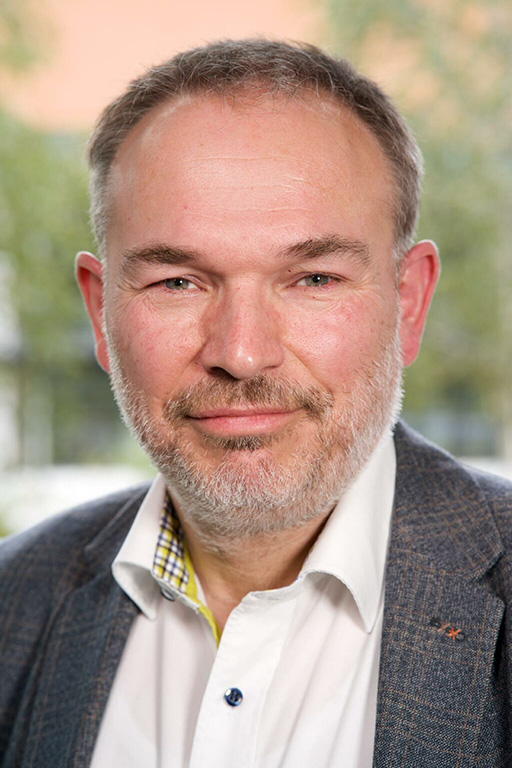
Internationally established – in Germany still in its infancy
Internationally, wastewater reuse is already established and widely used. In Germany, different framework conditions, a lack of knowledge or unknown expectations on the part of users hinder its possible use. A constructive exchange between water providers, authorities and users such as farmers and residents is imperative for the acceptance of reuse of treated wastewater. “Presenting the user benefits as well as ensuring appropriate risk management including monitoring play an important role here. Against the background of climate change and an expected reduction in water availability, increased acceptance will be necessary for wastewater reuse in the future. However, this will not happen automatically, but is the result not only of the provision of sophisticated technology, but also of targeted communication and information policy,” says Müller-Czygan. In order to be able to define measures for increasing acceptance, the research group “Water Infrastructure and Digitization”, as a subcontractor of Pegasys Gesellschaft für Automation und Datensysteme mbH, is taking over the acceptance investigation in the FlexTreat project.
Acceptance for recycled water depends on emotions
In general, the acceptance in the population depends on various factors, which are regionally and culturally very different. Thus, no general conclusions can be drawn. Each individual case would have to be examined for the various factors at the outset. The more frequent the reuse in the future, the more likely it will be that generally transferable acceptance patterns can be found and transferred
“In the international literature, there are already identified and scientifically validated factors that have frequently been cited as reasons for a negative attitude toward recycled water. We will examine their transferability to Germany.”
Dr. Julia Frank, “Water Infrastructure and Digitization” Research Group
Dr. Frank is responsible for the implementation of the project.
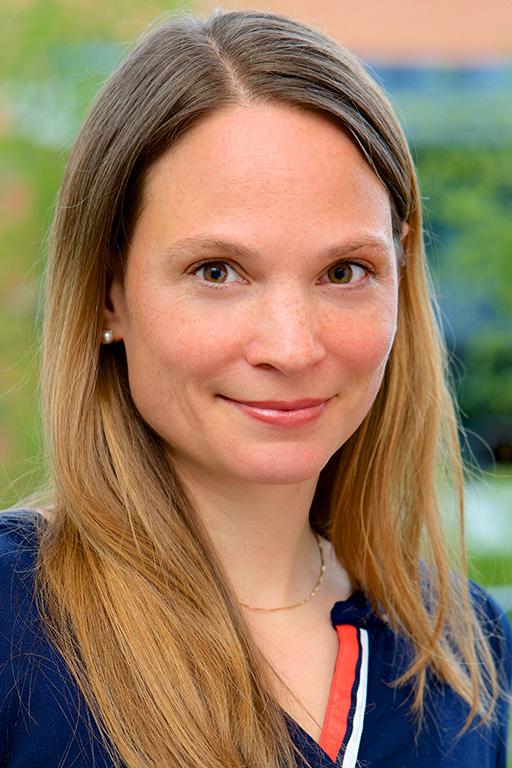
The “yuck factor”
Here are socio-technical, demographic, psychological, ecological, economic and cultural factors that influence the acceptance of wastewater reuse. The best-studied factor is psychological in nature, and is referred to in the literature as the “yuck factor.” It expresses the degree of rejection, or disgust, and is associated with low acceptance. “The degree of rejection is associated with a perceived personal health risk,” Frank said.
Cultural conditioning complicates transferability of regional studies
But factors such as age, education, religious affiliation, attitudes toward environmental protection, and even trust in politics also play a major role in the issue of wastewater reuse. They are so individual, culturally and regionally different that studies only show a clear connection with acceptance in the case of the “yuck factor“. Strategies to increase acceptance among the population with regard to the topic of wastewater reuse mostly involve educational campaigns. The population often lacks knowledge in general about wastewater treatment and the topic is all the more emotionally charged without sufficient background knowledge. In this context, it is important to inform the population about the process of wastewater treatment. The terminology used in information events or educational campaigns is important to note. In order to create the conditions for a high level of user acceptance, in-house research and a targeted stakeholder dialogue at the regional level are required. This is exactly what the research group “Water Infrastructure and Digitization” is laying the foundation for with its research in FlexTreat.




